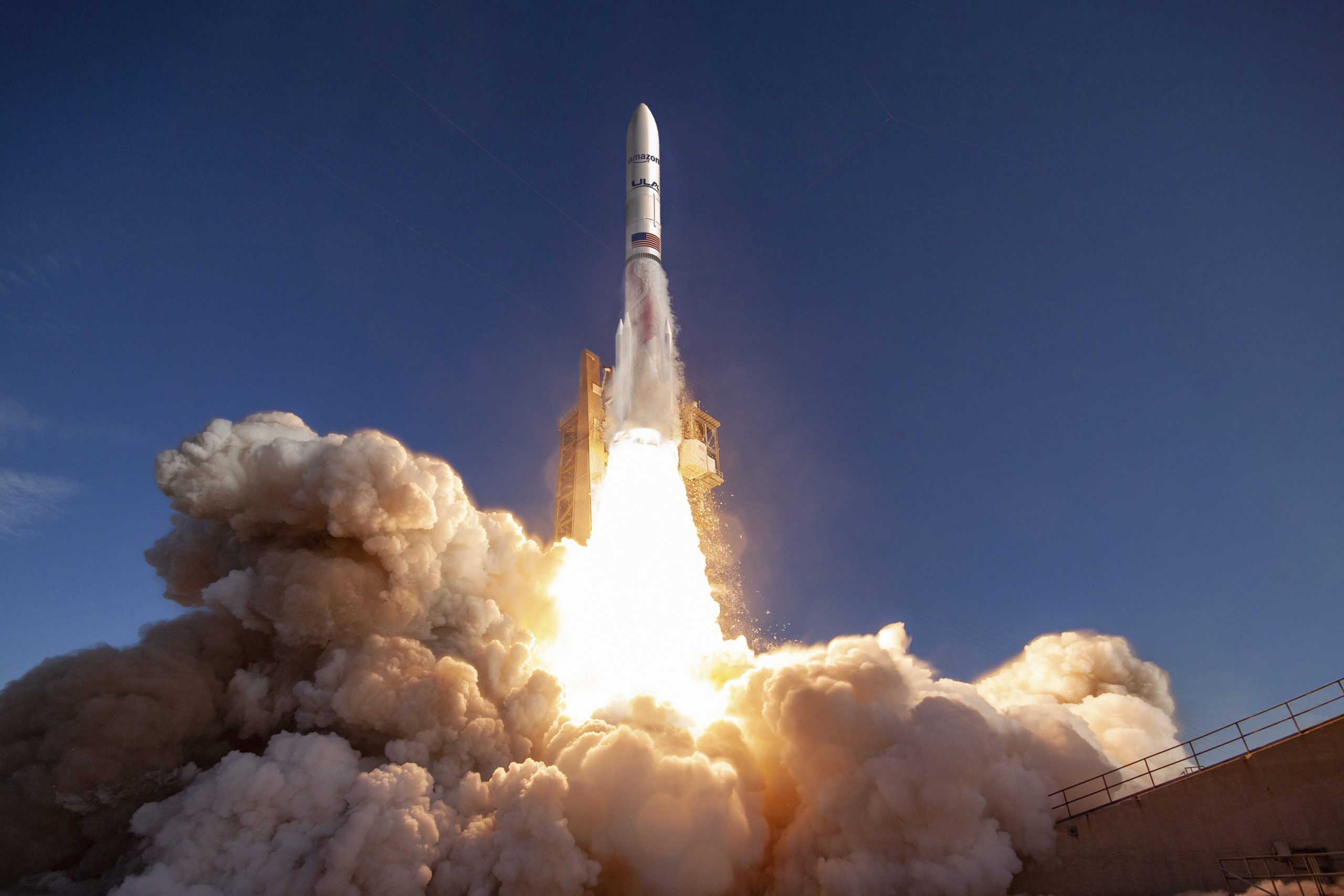Amazon Project Kuiper Satellites Set For Early 2023 Launch

Competitor for Starlink edges closer, after Amazon confirms launch in early 2023 of two prototype satellites for Project Kuiper
Amazon’s satellite broadband program, Project Kuiper, will launch two prototype satellites in early 2023 onboard a new rocket.
Amazon announced that its first two satellites (known as Kuipersat-1 and Kuipersat-2) will be completed later this year, and it plans to deploy both satellites on the first flight of United Launch Alliance’s (ULA) new Vulcan Centaur rocket in early 2023.
United Launch Alliance is a joint venture from Boeing-Lockheed Martin, which since 2006 has been offering launch services for other firms.

Project Kuiper
Amazon confirmed that ULA is scheduled to provide 47 launches for its satellite constellation, and using Vulcan Centaur for this mission will give it practical experience as it tests system performance in space.
The rocket will launch from Cape Canaveral Space Force Station in Florida, and the prototype satellites are scheduled to share the ride with the Peregrine lunar lander, a NASA-funded spacecraft from Astrobotic.
Amazon said that the prototype mission will help it test how the different pieces of its satellite network work together, adding real-world data from space to results from its extensive lab testing, fieldwork, and simulation.
Amazon said it will use findings from the mission to help finalise design, deployment, and operational plans for its commercial satellite system, which will provide reliable, affordable broadband to customers around the world.
“We couldn’t be more excited to join the first launch of ULA’s Vulcan Centaur,” said Rajeev Badyal, VP of technology for Project Kuiper.
“We’ve already secured 38 Kuiper launches on Vulcan, and using the same launch vehicle for our prototype mission gives us a chance to practice payload integration, processing, and mission management procedures ahead of those full-scale commercial launches,” said Badyal. “Our prototype satellites will be ready this year, and we look forward to flying with ULA.”
Deployment start
Amazon said that alongside preparations for this mission, the Project Kuiper team is starting to scale production to support a full deployment.
Its first production satellites – the more advanced spacecraft that will power its commercial broadband service – are scheduled to launch on ULA’s Atlas V rocket.
From there, Amazon will begin to phase in the Vulcan rocket alongside newer heavy-lift rockets from two other space launch companies, Arianespace and Blue Origin.
In April Amazon had signed a rocket deal with three firms to provide heavy-lift launch services for Project Kuiper.
![]()
Amazon has secured up to 92 launches with ULA, Arianespace, and Blue Origin to deploy its constellation of 3,236 satellites – “marking the largest commercial procurement of launch vehicles in history.”
This will allow Amazon’s Project Kuiper to start to challenge SpaceX and its Starlink constellation, as well as Oneweb.
Satellite connectivity
It was back in July 2020 when the Federal Communications Commission (FCC) gave its official approval for Amazon’s Project Kuiper satellites – Amazon has pledged to invest $10 billion in the project.
Project Kuiper aims to provide high-speed, low-latency broadband to a wide range of customers, including individual households, schools, hospitals, businesses, government agencies, disaster relief operations, mobile operators, and other organisations working in places without reliable internet connectivity.
Amazon said that more than 1,000 people currently work on Project Kuiper, and the team is making considerable progress as it prepares to serve tens of millions of customers around the world.